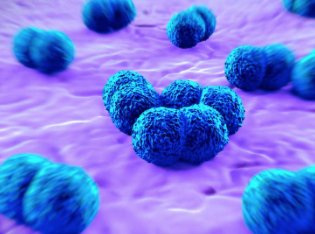The New Strain of Meningococcus
- icshealthsciencejournal

- Jun 20, 2020
- 2 min read
The New Strain of Meningococcus
Written By: Tawan Petpaiboon
June 20, 2020
Meningococcus, a species of gram-negative bacteria, has developed a new strain. This new strain of bacteria is found to be resistant to ciprofloxacin, and they also synthesize beta-lactamase. It is also known as “Neisseria(N) meningitidis.”
N. meningitidis is the cause of the infection in the brain and the spinal cord. The additional characteristics adding on to the known ones in the older species are that it is resistant to penicillin and ciprofloxacin, two types of antibiotics. As mentioned before, the bacteria contains an enzyme called “beta-lactamase,” which can destroy a component inside penicillin. Due to a genetic mutation, the bacteria is also resistant to ciprofloxacin. This mutated gene is called “blaROB-1.” In the United States, 33 cases of the infection by this bacteria were reported. The disease, being a secondary disease to COVID-19, also concerns scientists.
Getting rid of N. meningitidis is hindered by the fact that it is so diverse. Horizontal gene transfer as well as unstable protein expression cause this variety. Because of this variety, it makes the process of killing it difficult. There are 6 different types of N. meningitidis. There are antibiotics for 4 of the types. However, the one called MenB has structures similar to human neuron cells. And unfortunately, the majority of Westerners who have Meningitidis are specifically infected by MenB.
Symptoms of meningitis include nausea, headaches, stiff neck, and sleepiness. Some cases, however, can be lethal. Bacterial meningitis can spread through saliva or other respiratory fluids due to its characteristic of entering through respiratory routes. Patients who already have an immunodeficiency are more prone to having meningitis. There is also a combined disease of pneumonia and meningitis. Although it’s rare, it can be very severe.
To diagnose the disease of N. meningitidis, a lumbar puncture takes place to observe the spinal fluid. PCR is often performed to confirm the bacteria’s identity. After the confirmation, antibiotics are given to patients. The whole process is really important, so it should happen as soon as possible. Leaving the disease untreated can lead to death. Although a vaccine is formed on the basis of outer membrane vesicles, it’s still not quite an effective way to cure the disease. There is, fortunately, a vaccine called “MenB-FHbp” that can deal with the various types of Meningitis bacteria.
Because a strain of bacteria can mutate into a new strain any day, everybody should keep sanitation and be aware of the disease outbreak.






Comments